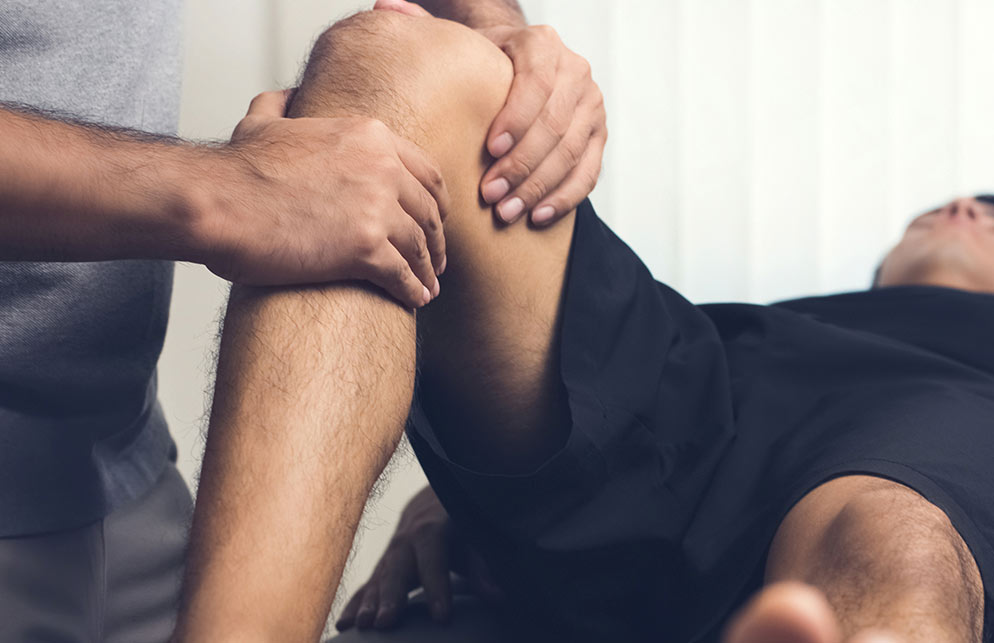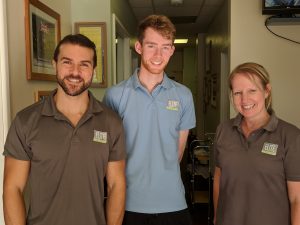
Working As a Student at Elite Therapy
A few months ago, we introduced our new student, John Balshaw to you. You’ll meet John at the clinic usually on Tuesdays and sometimes later in the week too and he’s very much part of our team now!
For any aspiring Sports Therapists out there, John has given this great insight as to what his placement involves and how it develops his skills for a future in the industry.
Working as a Student at Elite Therapy
Working for Elite Therapy was the ideal placement for me as there is such a large variety of things going on, whether it’s working with Nic and the Coventry Blaze players, shadowing at the clinic, or helping on reception. My course (Sports Therapy BSC, Coventry University) is something I find particularly interesting, however having not worked in any part of the industry for a significant time, variety and hands on experience was something I was keen to get during my placement year.
Working at the clinic is a good way to see different therapists working as everyone does things slightly differently to achieve the same result. You get to see different client positions, devices and techniques depending on who is doing the treatment.
Observational skills have enabled me to see first hand:
- How different therapists have slightly different ways of doing things
- Taping skills
- Soft tissue skills
- Ultrasound and use of electronic implements to assist in recovery
Being able to observe assessments and the following treatments also gives me the opportunity to ask relevant questions to the therapist so that I’m developing a clear understanding of how a diagnosis is reached and how the relevant treatment plan is formed.

John (Centre) with Seb Johnson (left) and Nic Sherlock (right)
For any student on work placement, while obviously I’m very keen to develop my knowledge and skills as a sports therapist, it is critical that I develop an understanding of how the clinic functions beyond the patient experience.
Office and clinic duties and skills have included:
- Filing (a lot of filing!)
- Stock checking (learning what everything is,where it is and what it’s used for)
- Communication skills – dealing with patients both face to face and over the phone as well as working as part of the team
- Research on injuries
- Setting up treatment rooms ready for the patient
- Preparing patient notes for each therapist
- Reception work
Coventry Blaze Ice Hockey Team
Working at Coventry Blaze is a great experience. Working with elite level athletes is different to a clinical experience because of the unpredictability of the day. There will be times where not much is happening and then a few players will appear with injuries, so you can’t spend half an hour on everyone who needs treatment.
It’s a totally new experience for me as my favourite sports is tennis!
During a game there won’t be a long rest for the players between thirds, so if they want treatment during the break it has to be short but effective so they can get back out on the ice to compete at their highest level.
As you would expect, as they all play the same sport, a lot of the injuries are similar. So far what I have experienced is a large amount of work to release tightness to the muscles around the hip and thigh.
Communication is a big part of working with a team. The players need to feel comfortable to talk to the staff so that acute injuries can be caught and dealt with before the injury becomes serious. As everyone is in on different days, communication between the physio team is also important so that you can be aware of any worries.
Whilst the players are training there isn’t always a lot to do. However, you need to be found easily if you’re needed. Whilst waiting there are other jobs to be done, such as stock checking. All the medicines, tapes, sprays and supplements all have to be checked regularly so that there’s no instances where something vital is missing when needed.
Working with the Blaze team has been great to develop my hands on skills such as:
- Lower body: Treating Glutes, quads, hams, adductors muscle tightness
- Client position
- Quick fix! Being able to think quick and treat effectively and efficiently to return the player to the ice
Communication:
- Keeping updated on everyone
- Making sure the players are comfortable around you and each other
- Team attitude
For anyone thinking seriously about following a career in sports therapy, I really would recommend getting a good placement where you can develop your therapy skills but also, to be prepared to gain other skills, such as those I’ve gained helping more behind the scenes in the clinic as this gives you a clear understanding about the industry. Above all, you must be prepared to work as a team, and to ‘muck in’ at all times to help that team to function effectively.
John Balshaw
Elite Therapy BSc Student


